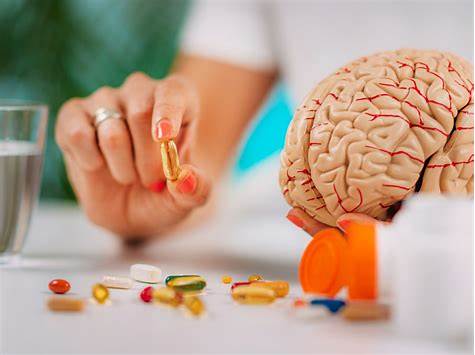As we age, our bodies undergo various changes and maintaining mental and emotional well-being becomes increasingly important. Two factors that can significantly influence our mood and behavior are antibiotics and fish oil. Understanding how these substances affect us can help in managing aggression and agitation, common issues among seniors.
Antibiotics and Aggression
Antibiotics are powerful medications used to treat bacterial infections. While they are essential for combating illnesses, they can sometimes have unexpected side effects on mental health. Research has shown that antibiotics can disrupt the balance of gut bacteria, known as the microbiome. This disruption can lead to changes in brain chemistry and behavior.
Studies have shown that antibiotic prescription rates are higher among older adults, especially those in long-term care facilities. This is partly due to the higher incidence of infections and comorbidities in this age group. Additionally, there is a concern about the high rate of inappropriate antibiotic prescriptions among seniors, with up to 50% of prescriptions in long-term care facilities being inappropriate.
The gut and brain are closely connected through the gut-brain axis. When antibiotics alter the gut microbiome, it can affect the production of neurotransmitters like serotonin and dopamine, which play crucial roles in regulating mood and behavior. Some antibiotics can cross the blood-brain barrier and directly impact brain function. This can result in side effects such as confusion, anxiety, and irritability, which may manifest as aggression. Antibiotics can also cause inflammation in the gut, which may lead to increased levels of systemic inflammation. Inflammation has been linked to various mental health issues, including aggression and agitation.
Direct Effects on the Brain: Fish Oil and Calming Effects
Fish oil, rich in omega-3 fatty acids, is known for its numerous health benefits, including its positive effects on mental health. Omega-3 fatty acids, particularly EPA and DHA, are essential for brain function and can help in calming agitation and reducing aggression. Omega-3 fatty acids have strong anti-inflammatory properties. By reducing inflammation in the body and brain, fish oil can help alleviate symptoms of agitation and aggression. Omega-3s play a vital role in the production and function of neurotransmitters. They help maintain the balance of serotonin and dopamine, which can improve mood and reduce aggressive behavior.
Regular consumption of fish oil supports overall brain health. It can enhance cognitive function, improve memory, and reduce the risk of mental health issues, contributing to a calmer and more stable mood.
Life Transitions and Anxiety
As seniors navigate various life transitions, such as retirement, loss of loved ones, and declining health, these changes can trigger anxiety and agitation. The transition from a structured work life to retirement can be challenging, leading to feelings of isolation and anxiety due to the loss of routine and social interactions. Finding new hobbies and social activities can help mitigate these feelings.
Additionally, the loss of friends and family members is a common experience for seniors, and grieving can increase anxiety and agitation. Seeking support from friends, family, or support groups can provide comfort during these times. Physical health issues and the fear of losing independence also contribute to anxiety, but staying active, maintaining a healthy diet, and seeking medical advice can help manage these concerns.
Practical Tips for Seniors
- Consult Your Doctor: Before making any changes to your medication or supplement regimen, consult your healthcare provider. They can provide personalized advice based on your health needs.
- Monitor Your Mood: Keep track of any changes in your mood or behavior when taking antibiotics. If you notice increased aggression or agitation, discuss it with your doctor.
- Incorporate Fish Oil: Consider adding fish oil supplements to your diet. Look for high-quality products with a good balance of EPA and DHA. Alternatively, include fatty fish, like salmon, mackerel, and sardines in your meals.
- Stay Connected: Engage in social activities and maintain connections with friends and family to reduce feelings of isolation and anxiety.
- Stay Active: Regular physical activity can improve both physical and mental health, helping to reduce anxiety and agitation.
Understanding the impact of antibiotics and fish oil on mental health, along with the challenges posed by life transitions, can empower seniors to make informed decisions about their well-being. By being aware of potential side effects and incorporating beneficial supplements, seniors can better manage aggression and agitation, leading to a more peaceful and fulfilling life.
